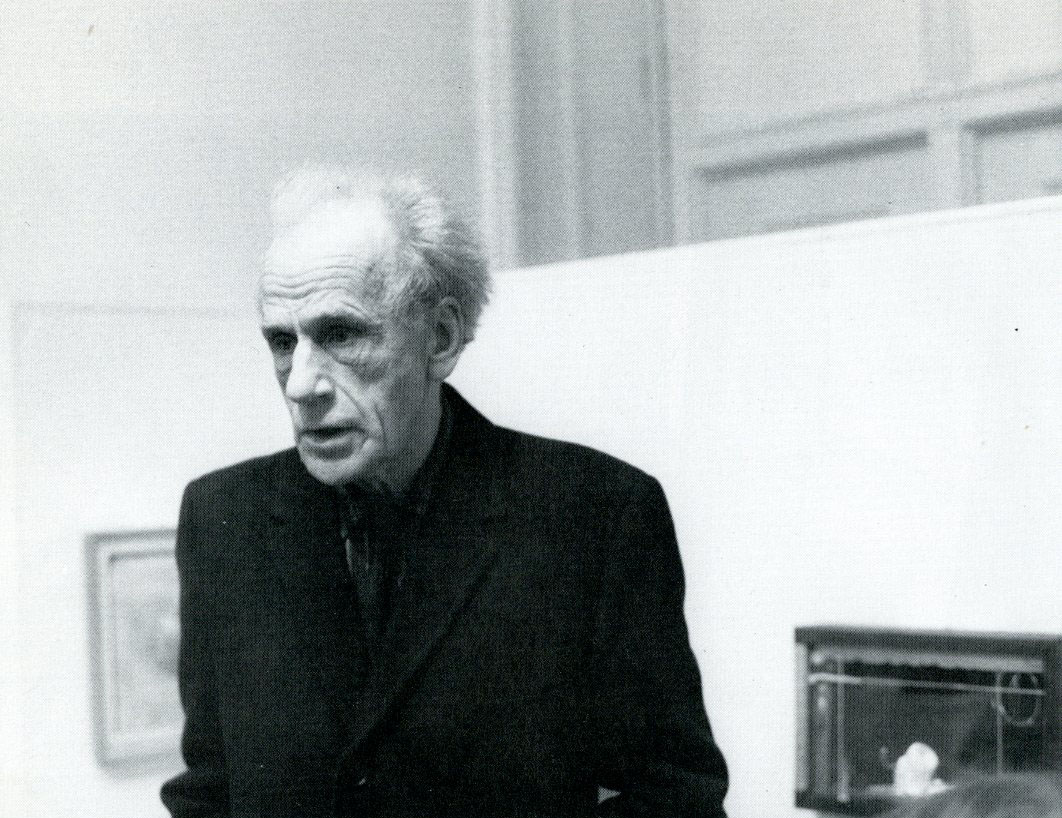Spring is just arriving, but the arts are in full bloom at the University of Virginia.
The Betsy and John Casteen Arts Grounds has become a centerpiece of the University; the new state-of-the-art Ruth Caplin Theatre now features top-notch dramatic performances; major artists such as celebrated composer Philip Glass and writer James Salter have held residencies; and Tina Fey and Kevin Spacey have had successful appearances as part of the President’s Speaker Series for the Arts.
What’s more, U.Va. has become a real destination for the arts, with attendance rising for events ranging from exhibits at The Fralin Museum of Art to the Heritage Theatre Festival to the Virginia Film Festival.
This growth is due in large part to the legacy of one of the most important American artists of the 20th century, Joseph Cornell (1903-72), a pioneer and celebrated exponent of assemblage and collage art.
Joe Erdman, a 1956 U.Va. alumnus who majored in political science, serves as co-trustee of The Joseph and Robert Cornell Memorial Foundation, the foremost contributor to U.Va. arts programs.
The foundation is named for the legendary American artist and his brother, and grew from the artist’s financial legacy.
“When I was a student at U.Va., I found that the arts were kind of missing from Grounds,” Erdman said. “There was very little visibility of the arts. And I felt then that this great university was trailing other universities of similar stature throughout the country in this regard.”
During the past year, the Cornell Foundation has awarded U.Va. arts organizations gifts totaling approximately $1.5 million.
In 2014, arts programs and initiatives that directly benefited from the foundation included The Fralin Museum of Art, President’s Speaker Series for the Arts, Heritage Theatre Festival, Virginia Film Festival, Virginia Foundation for the Humanities, University Singers and the Arts Endowment Fund.
“The support of the Joseph and Robert Cornell Memorial Foundation has been vital to sustaining and growing the arts at U.Va.,” said Jody Kielbasa, vice provost for the arts and director of the Virginia Film Festival. “Joe Erdman believes that the arts are and must be an important part of the student experience at the University of Virginia that will serve to enrich our student’s lives forever, and his support has allowed us to advance the arts significantly over the past several years.”
Since 2000, through the offices of Erdman and co-trustee Richard Ader, the Cornell Foundation has played a crucial role in ensuring the emergence and ongoing development of the arts at U.Va., and during the past decade, the relationship between the foundation and U.Va. has grown significantly. (The foundation’s gifts have also supported historical and intellectual sites such as Monticello, Montpelier and U.Va.’s Miller Center.)
“When I had the good fortune to become a co-trustee of the foundation with Richard, I felt, ‘Here’s something I can do to directly contribute to the arts at U.Va.,’” Erdman said. “I felt strongly that this is something Cornell would have wanted.”
Last spring, The Fralin held a highly successful exhibit and symposium, “Joseph Cornell and Surrealism,” an international collaboration with the Musée des Beaux-Arts de Lyon.
“The impact of the Joseph and Robert Cornell Memorial Foundation upon The Fralin Museum of Art has been transformative,” said Bruce Boucher, the museum’s director. “Their gifts of art have strengthened our collection, and their financial support has enabled us to develop and expand our exhibitions and other programming.”
Cornell was considered one of the most imaginative American artists of the 20th century. The mysterious little worlds he created in his boxes have influenced everyone from pop artists Robert Rauschenberg and Andy Warhol to contemporary installation artists.
More than a half-century before there were online applications devoted to the art of virtual collage, Cornell was busy creating his own assemblage works by hand. With snippets of magazines, pasted photographs and found objects, the universe of Cornell’s imagination was realized in meticulously composed masterworks born of everyday material.
Cornell created his collages and shadow boxes in the basement of a house on Utopia Parkway in Queens, where he lived with his mother Helen and his disabled brother, Robert. His shrines mixed images from popular culture, such as Hollywood B-movies, with the arcane, including antique maps, Renaissance paintings.
He was never trained as an artist; he never learned to paint or draw. But he did have an eye for the way objects and images fit together. He worked alone and almost never traveled outside New York City. He was an urban archivist who explored a specific milieu – the city and its outlying suburbs – and turned his discoveries into homegrown art.
Cornell’s brother died in 1965, and his mother in 1966. Joseph died of heart failure in 1972, a few days after his 69th birthday.
Ader and Erdman were partners in a New York City law firm for many years, representing writer James Joyce and his publisher, Sylvia Beach, before Cornell walked into their offices one day.
Ader helped Cornell draft his last will and testament. When Cornell died, Ader was away, so Erdman attended the memorial service. Erdman met Cornell’s niece, who played an important role in the settlement. He helped handle the estate and worked on various legal arrangements for both the estate and then for the foundation.
Ader and Erdman later became Florida residents, though each family now also has a home in Charlottesville. (Erdman is the owner of Albemarle Asset Management Ltd., based in Florida and Virginia.)
For Erdman, it’s not only Cornell who would appreciate what the Cornell Foundation has done for the arts at the University.
“U.Va. is moving forward and continues to elevate the arts to its rightful place at Mr. Jefferson’s University,” Erdman said. “Who else would have been more pleased to see the growth of the arts at U.Va. than the founder of the University himself?”
Media Contact
Article Information
March 20, 2015
/content/legacy-celebrated-artist-joseph-cornell-helps-arts-thrive-uva

